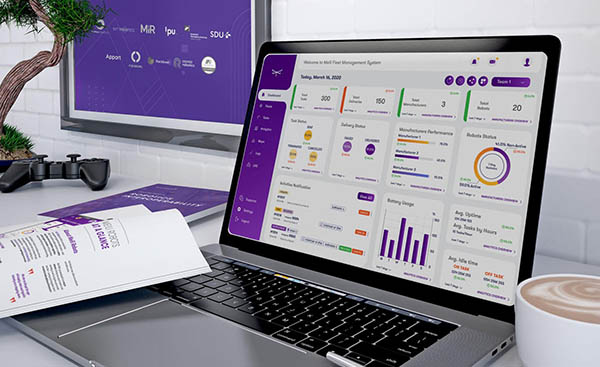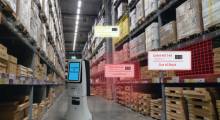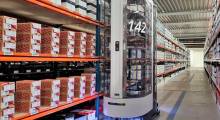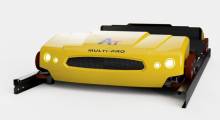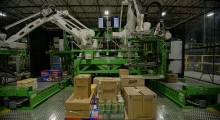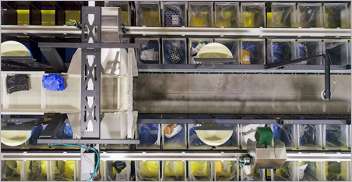It is no news that automation is transforming many industries, and retail is no exception—especially considering the e-commerce boom during the COVID-19 pandemic. Just as retail is a massive industry, so is the retail automation market.
As is illustrated below, the global retail automation market is projected to show significant growth. The market was already valued at $11.22 billion back in 2018 and is now expected to reach a value of $23.42 billion by 2026, at a compound annual growth rate (CAGR) of 9.7% between 2021 and 2026.
.png)
What is retail automation?
Retail automation refers to the technologies that enable businesses — regardless of whether they are online or brick-and-mortar stores—to streamline manual, repetitive processes that otherwise would require a lot of time and resources.
Such automation can have a significant impact on nearly every aspect of a retail business — think of inventory and order management, order fulfillment, marketing automation, and so forth. We will discuss some of the most common types of retail automation below.
Retail automation trends
As mentioned above, the pandemic has had quite the impact on the retail industry, with consumer behavior shifting toward more online shopping. E-commerce sales have increased by 32.4% during 2021, whereas brick-and-mortar sales have shown a 3.2% decrease during the same period.
As a result of this e-commerce boost, we can see a number of trends in the retail sector that are likely here to stay:
- Omnichannel retail marketing: The use of various channels that allow businesses to offer more versatile products and services to their customers. This can refer to, for example, a larger variety of delivery options, but also in-app rewards that can be redeemed in-store or online.
- Smart technologies: Technologies such as virtual and augmented reality (VR and AR) and artificial intelligence allow customers to have a more individualized shopping experience, while also allowing businesses to better understand consumer behavior and predict trends.
- Marketing automation: By intelligently acquiring personal information, businesses can drive more sales through personalized e-mails, discount codes, offers, and so on.
Types of retail automation
There are many ways in which automation can be adopted to retail operations and practices. However, there are some types of automation that are commonly seen in retail businesses. Let’s have a brief look at them.
Warehouse automation
One of the most popular markets for automation is in warehouse operations. This includes many different operations, from packing and picking orders to optimizing inventory space. Common use cases include data collection, employee management, barcode scanning, and so forth.
Considering the potential benefits of warehouse automation, it should come as no surprise that we expect to see tremendous growth. The market, valued at $14.33 billion in 2018, is expected to double its value to $28.66 billion by 2026.
.png)
Inventory management
With the help of the Internet of Things (IoT), inventory management software enables businesses to accurately track inventory levels and predict future demand. The automation of stock counts can also alert operators whenever stock is running low, while at the same time enabling automated purchasing processes.
In fact, having an automated inventory is becoming more and more important these days as many businesses are combining different channels — such as online stores, brick and mortar stores, apps, third-party marketplaces, and so forth.
Service robots and fleet management
Of course, an automated retail store would not be complete without robots. In addition to robots for optimizing inventory and order fulfillment, service robots can assist customers in stores, stock shelves, clean floors, and monitor security.
For the optimal management of robot fleets, it is important to consider a universal fleet management system that can orchestrate diverse robot fleets.
Stores also use other types of hardware and software to enhance the customer experience. They include point-of-sale (POS) systems, automated retail vending machines, electronic shelf labels, info kiosks, and self-checkout terminals.
The benefits of retail automation
There are many benefits to retail automation, but a number of them stand out. They include the following:
- Increased accuracy
- Improved customer experience
- Reduced labor costs
- Optimized time management
- Increased sales and business growth
- Mitigated fraud risks
Not only are these benefits in itself beneficial to any type of retail business, but they also help address a number of market challenges. In fact, 66% of consumers believe that automation would be able to solve a number of challenges in retail, such as long checkout lines.
Another 46% of consumers have said to be willing to change their online purchase to an automated retail store.
The current market trends and shifts in consumer behavior show the great potential for robotics and automation in retail. As the industry itself adds more automation, supply chains need more accurate inventory management and predictions of future demand and trends.
Retailers must also meet the increasing demand for contactless in-store payments and be able to provide a more personalized customer experience.

About the author
Michelle Schlechtriem is the content manager at Meili Robots. She writes about marketing, technology, and sustainability.
Meili Robots provides a universal fleet management system called Meili FMS. The system is designed to allow robot operators to handle different types and brands of autonomous mobile robots (AMRs) and automated guided vehicles (AGVs) in one system. The fleet management tool can be used for planning, assigning, and executing tasks through key features such as mapping, data logging, and data analytics, said the Copenhagen-based company.
Article topics
Email Sign Up

